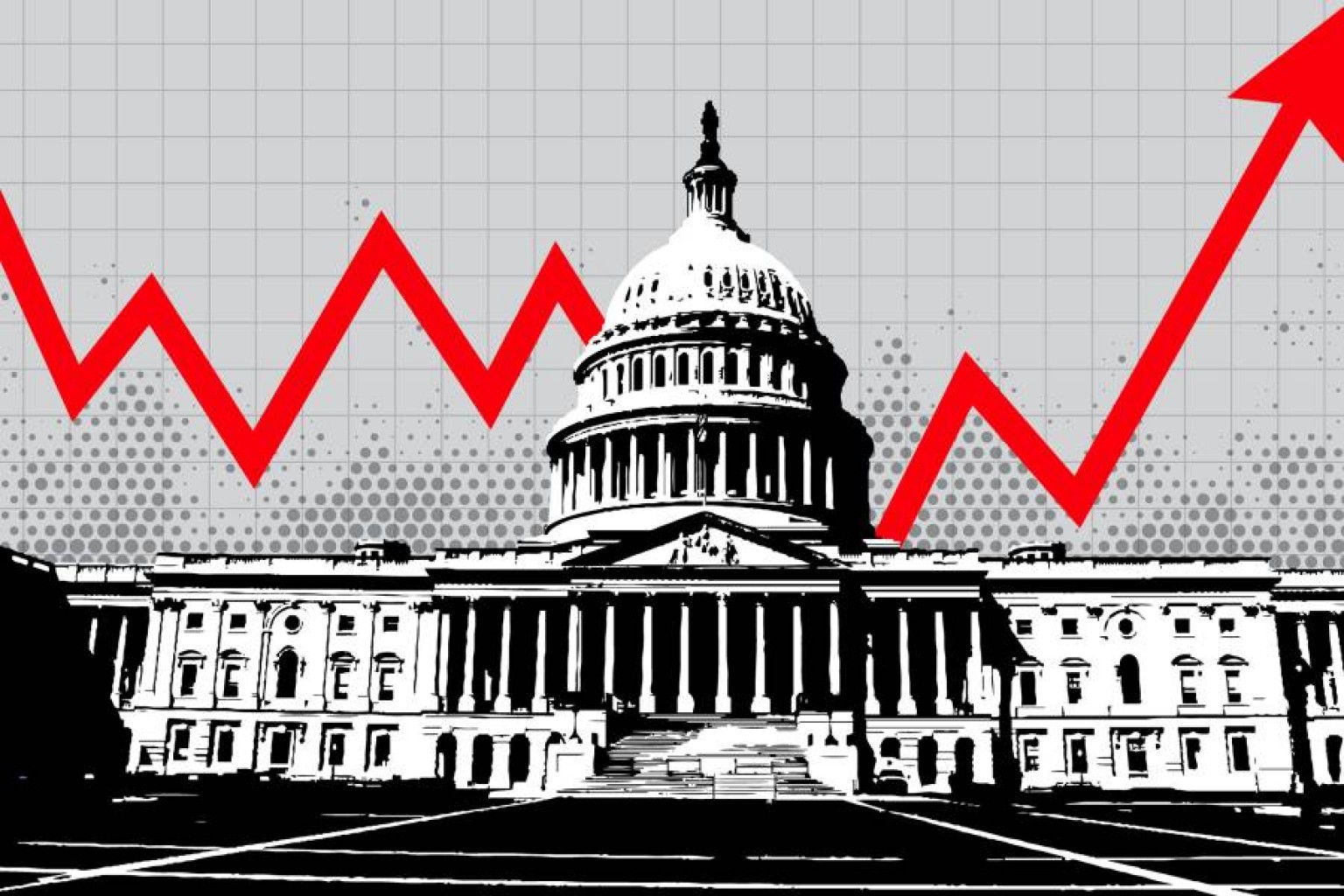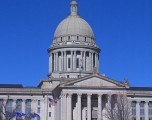El acuerdo sobre el techo de la deuda evita el impago, a costillas de la gente de bajos recursos

El acuerdo sobre el techo de la deuda firmado el sábado por Biden deja a los más desfavorecidos con menos apoyo, mientras la deuda del país sigue aumentando.
ByPeter White
Washington.-El acuerdo sobre el techo de la deuda alcanzado la semana pasada entre demócratas y republicanos ha evitado un posible desastre económico. Pero los expertos afirman que el proyecto de ley tendrá consecuencias a largo plazo para quienes se encuentran en los peldaños más bajos de la escala económica.
También crece la preocupación por el aumento de la deuda del país y lo que ello significa para los numerosos programas federales de los que dependen millones de personas.
“Sabemos que esos efectos se habrían dejado sentir profundamente, muy profundamente, entre las personas más vulnerables económicamente”, afirma Shannon Buckingham, Vice-presidenta del Center on Budget and Policy Priorities (Centro de prioridades presupuestarias y políticas), al hablar de las posibles consecuencias de un impago.
“Sesenta y cinco millones de beneficiarios de la Seguridad Social podrían haber visto retrasadas sus prestaciones, seis millones de veteranos y sus supervivientes podrían haber visto retenidas sus prestaciones. Las familias podrían haber visto retrasadas sus ayudas mensuales para alquiler, para alimentación y cuidado de los niños”, afirmó Buckingham.
Sin un acuerdo, podríamos haber visto una pérdida de entre 7 y 8 millones de puestos de trabajo y un aumento del desempleo”. Buckingham habló con periodistas de medios étnicos el viernes pasado durante una conferencia de prensa organizada por Ethnic Media Services, un día antes de que el Presidente
Biden firmara el acuerdo, ampliando el límite de la deuda hasta 2025 y garantizando que Estados Unidos evitara el primer impago de su historia.
Aumento del hambre y la pobreza para adultos mayores
Shannon Buckingham, Vicepresidenta Senior de Comunicaciones y Consejera Senior del Center on Budget and Policy Priorities, explica cómo el nuevo requisito de trabajo para los adultos mayores en el Programa de Asistencia Nutricional Suplementaria pone en riesgo a estos beneficiarios.
Buckingham denunció a los republicanos por utilizar el techo de la deudacomo rehén para forzar políticas profundamente impopulares y perjudiciales que no pudieron aprobar cuando tenían el control total del Congreso.
“Vimos la naturaleza extrema de sus exigencias en el proyecto de ley que (la Cámara controlada por los republicanos) aprobó hace unas semanas. Afortunadamente, el acuerdo final que se alcanzó evitó gran parte del daño que ese proyecto de ley habría infligido”, declaró.
El acuerdo bipartidista, aprobado a pesar de la resistencia de los legisladores republicanos de extrema derecha de la Cámara de Representantes, contiene algunas malas noticias para las personas que luchan por lograr que el dinero alcance para llegar a fin de mes. Por ejemplo, un requisito de reportar sobre el trabajo para los adultos mayores de bajos ingresos que reciben beneficios de SNAP (Programa suplementario de asistencia nutricional) aumentará el hambre
y la pobreza para las personas, de 50-54 años. Buckingham dijo que muchas personas en ese grupo de edad están en mal estado de salud y ya no pueden hacer los trabajos físicamente demandantes que una alguna vez desempeñaron. “Y muchos perderán la ayuda básica con la que cuentan para comprar despensa”, afirma.
La gente puede obtener una exención médica, pero el proceso está notoriamente cargado de burocracia y simplemente no funciona, añadió Buckingham.
“Reconocemos la voluntad del Congreso de evitar el impago”, afirma Rachel Snyderman, directora asociada de política económica y empresarial del Bipartisan Policy Center de Washington.
El acuerdo se centra en el gasto discrecional -aproximadamente una cuarta parte del presupuesto federal- y Snyderman afirma que en la última década se ha visto cómo se intensifican las tensiones políticas en torno al límite de la deuda.
“Hemos empezado a ver el límite de la deuda como una especie de rehén. Es el único momento en que ambos partidos se reúnen para mantener debates fructíferos y significativos sobre política fiscal”, afirma.
‘Ha llegado la hora de actuar’ contra la deuda
Rachel Snyderman, Directora Asociada Senior de Política Empresarial y Económica del Bipartisan Policy Center, afirma que el techo de la deuda no aborda la necesidad de ingresos más allá del recorte de impuestos.
“Los intereses de nuestra deuda van a superar nuestro gasto en Medicaid el año que viene. Éste se convertirá en el mayor gasto federal en los próximos 30 años”, advirtió Snyderman.
A continuación, enumeró las cosas que el gobierno no tendrá dinero para pagar cuando los pagos de intereses se conviertan en el mayor gasto de la nación. Entre ellas se incluyen programas sociales críticos de los que dependen millones de familias estadounidenses, el gasto en defensa de nuestro ejército y las inversiones de ayuda en energías limpias y educación en el exterior.
“Es hora de actuar ya”, afirma.
La deuda nacional, de 31 trillones de dólares, representa aproximadamente un tercio del total del mercado de deuda estatal.
“Antes incluso de que hablemos del incumplimiento del pago, estamos viendo un reflejo de la creciente aversión al riesgo entre los inversores mundiales que poseen y compran nuestra deuda”, afirma Snyderman.
El aumento de los rendimientos que los inversores exigen a los bonos del Tesoro no hace sino aumentar nuestros costes de endeudamiento, que luego pagan los contribuyentes. Si incurriéramos en impago, probablemente se produciría un rápido descenso de la demanda de títulos estadounidenses y perturbaciones negativas en las economías de todo el mundo.
Dentro de dos años, los republicanos podrían forzar otro juego de políticas riesgosas para recortar programas sociales como la Seguridad Social y Medicare.
Eliminar el techo de la deuda
¿Podría suspenderse el límite de deuda durante más tiempo o eliminarse por completo?
“La respuesta es absolutamente al cien por cien”, afirma Lindsay Owens, directora ejecutiva de Groundwork Collaborative, un think tank (tanque de pensamiento) de izquierda basado en Washington.
“No hay ningún tipo de mérito en el hecho de que sea bipartidista. No deberíamos estar en una situación en la que el gobierno estadounidense esté a una semana de incumplir sus obligaciones”.
Owens subrayó que el techo de la deuda no tiene que ver con el gasto futuro. Se trata de pagar facturas de gastos en los que ya se ha incurrido.
“Por lo tanto, el “aumentar” del techo de la deuda no tiene absolutamente ninguna relación con el futuro fiscal”, afirma. Desde un punto de vista estructural, el presupuesto y las cuestiones fiscales no tienen nada que ver con el techo de la deuda.
“Es porque un contingente de republicanos en el Congreso insistió en vincular una lucha presupuestaria a la eliminación del techo de deuda, ¿verdad? Así que
el aparejamiento de estas dos cosas es estrictamente artificial y estrictamente una construcción política, no un requisito para levantar el techo de deuda.”
La reducción del presupuesto del IRS recientemente aprobado privará a la agencia del personal y la tecnología que tanto necesita para tomar medidas enérgicas contra la evasión fiscal y, en última instancia, costará millones de dólares a Estados Unidos, afirma Lindsay Owens, doctora y directora ejecutiva de Groundwork Collaborative.
Poniendo orden en nuestra situación fiscal
Según Owens, los recortes presupuestarios al IRS (Servicio de rentas internas) de 21.4 millones de millones de dólares a lo largo de diez años incluidos en el proyecto de ley suponen en realidad un aumento neto del déficit.
“Ello se debe a que el IRS deja de recaudar ingresos. Es una parte muy importante del acuerdo”, afirma.
El acuerdo congela la financiación discrecional durante un año y la aumenta un 1% el segundo año. Pero si se tiene en cuenta que la inflación ronda el 5%, Owens afirma que esto significa menos ayudas a la vivienda, menos plazas para que los niños pequeños vayan a Head Start (Programa para infantes), menos servicios para los adultos mayores, entre otros.
Dinamarca gestiona su deuda mejor que Estados Unidos, señala Owens, quien añade que, aunque se trata de debates con motivaciones políticas, hay un
camino a seguir. “Tenemos que tener el coraje político de poner orden en nuestra situación fiscal”.
Mientras criticamos a otros países por sus economías deprimidas, Estados Unidos sigue viviendo por encima de sus posibilidades.
“Como la economía más fuerte del mundo, estamos dejando el impago sobre la mesa por razones puramente políticas, no porque no tengamos acceso a los mercados de capitales, lo que nos diferencia de las crisis que hemos visto en Grecia, Argentina y Venezuela, por ejemplo”, afirma Owen.
Debt Ceiling Deal Averts Default, With Poor and Elderly Paying the Price
Held for ransom by Republicans, the debt ceiling deal Biden signed Saturday leaves those on the lower rungs with less support even as the nation’s debt continues to mount.
ByPeter White
The debt ceiling deal brokered last week between Democrats and Republicans staved off potential economic disaster. But experts say the bill will have long-term consequences for those on the lower rungs of the economic ladder.
There is also growing concern about the nation’s mounting debt and what that means for the many federal programs that millions rely on.
“We know those effects would have been felt deeply, very deeply by people who are the least economically secure,” says Shannon Buckingham, Senior Vice president at the Center on Budget and Policy Priorities, speaking about the potential consequences of a default.
“Sixty-five million Social Security beneficiaries could have seen their benefits delayed, six million veterans and their survivors could have had their benefits held up. Families could have seen their monthly rental assistance, food assistance, childcare delayed,” Buckingham said.
Without a deal we could have seen a loss of 7-8 million jobs and a spike in unemployment. Buckingham spoke with reporters Friday during an Ethnic Media Services press briefing, one day ahead of President Biden signing the deal, extending the debt limit through 2025 and ensuring the US avoids a first-ever default.
Increased hunger, poverty for older adults
Buckingham called out Republicans for using the debt ceiling as a hostage to force deeply unpopular and harmful policies that they could not pass when they held full control of Congress.
“We saw the extreme nature of their demands in the bill that (the Republican-controlled House) passed a few weeks ago. Fortunately, the ultimate agreement that was reached avoided much of the damage that that bill would have inflicted,” she said.
The bipartisan deal, which passed despite resistance from far-right GOP lawmakers in the House, has some bad news for people who struggle to make ends meet. For example, a work reporting requirement for low-income older adults who receive SNAP benefits will increase hunger and poverty for people, age 50-54. Buckingham said many people in that age group are in poor health and can no longer do the physically demanding jobs they once held. “And so many will lose the basic assistance that they count on to buy groceries,” she says.
People can get a medical waiver, but the process is notoriously laden with red tape and just doesn’t work, Buckingham added.
“We applaud Congress’s willingness to avoid default,” says Rachel Snyderman, Senior Associate Director of business and economic policy for the Bipartisan Policy Center in Washington.
The deal targets discretionary spending – about one quarter of the federal budget – and Snyderman says we have seen political brinkmanship surrounding the debt limit intensify in the last decade.
“We’ve started to see the debt limit be kind of a hostage-taking device. It’s the only time when both parties come together to have fruitful, meaningful discussions about fiscal policy,” she says.
‘Time to act’ on debt
“The interest on our debt is going to outpace our spending on Medicaid next year. It’s going to become the largest federal expenditure within the next 30 years,” Snyderman warned.
She then listed things the government won’t have money to pay for when interest payments become the nation’s largest expense. They include critical social programs that millions of American families rely on, spending for defense in our military, and foreign aid investments in clean energy, and education.
“It’s time to act now,” she says.
The national debt of $31 trillion amounts to about one third of the total sovereign-debt market.
“Before we’re even talking about default, we’re seeing a reflection of increased risk aversion among global investors holding and buying our debt,” says Snyderman.
Increased yields that investors demand on treasury notes only drive up our costs to borrow, but those are then paid for by taxpayers. If we were to default, there would likely be a rapid decrease in demand for US securities and negative shocks to economies around the world.
Two years from now Republicans could force another game of political brinkmanship to cut back social programs like Social Security and Medicare.
Eliminating the debt ceiling
Could the debt limit be suspended for a longer period of time or eliminated altogether?
“The answer is absolutely one hundred percent,” says Lindsay Owens, Executive Director of the Groundwork Collaborative, a left-leaning think tank in Washington.
“There is no sort of glory in the fact that it is bipartisan. You know, we should not be in a position where the American government is getting within a week of defaulting on its obligations.”
Owens stressed that the debt ceiling isn’t about future spending. It’s about paying bills on spending that’s already been incurred.
“So, this lifting the debt ceiling has absolutely no bearing on fiscal matters moving forward,” she says. As a structural matter, the budget and talking about fiscal matters is mostly unrelated to the debt ceiling, she says.
“It’s because a contingent of Republicans in Congress insisted on tying a budget fight to the debt ceiling elimination, right? So, the pairing of these two things is strictly artificial and strictly a political construction, not a requirement of lifting the debt ceiling.”
Getting our fiscal house in order
The IRS budget cuts of $21.4 billion over ten years included in the bill actually results in a net increase to the deficit, Owens says.
“That’s because it results in foregone revenue collection by the IRS. So that’s just a really important piece of the deal,” she says.
The deal freezes discretionary funding for one year and increases it by 1% in the second year. But if you consider inflation is running about 5%, Owens says it means less housing assistance, fewer slots for toddlers to go to Head Start, less services for seniors, and the like.
Denmark does a better job than the U.S. handling its debt, Owens notes, adding that while these are politically motivated discussions, there is a way forward. “We have to have the political courage to get our fiscal house in order.”
While we fault other countries for their sluggish economies, the U.S. continues to live beyond its means.
“As the world’s strongest economy, we’re leaving default on the table for purely political reasons, not because we don’t have access to the to capital markets, which differentiates us from the crises that we’ve seen in Greece and Argentina and Venezuela, for example,” Owen says.
Comentar
Los campos obligatorios estan marcados con *
4 Comentarios
-
Kelvin Trost
13 June 2023 17:13Overall great experience with PINNACLE CREDIT SPECIALIST! My credit score started in the dumps and I didn’t have any clue on where to start for it to get better. I will be buying a house in the next year so repairing my credit was necessary. PINNACLE CREDIT SPECIALIST worked with me every step of the way and conducted honest business which is very RARE when it comes to credit repair. Overall I would recommend them. Contact them by email: PINNACLECREDITSPECIALIST@GMAIL.COM OR TEXT PHONE: +1 (872) 265 2951.
-
Jay Doris
12 June 2023 12:48Generally speaking, whether lost bitcoin can be found or not depends on how it was lost. Considering the quantity of missing cryptocurrency out there, people have begun offering services to help recover lost bitcoin. These include data recovery specialists, but you need a professional recovery expert like Mr Morris Gray to help you get back your lost bitcoin. Contact him to recover your lost bitcoin, bitcoin cash, as well as all other forms of cryptocurrency. And you can be sure that no matter how long it has been lost, you will still get your bitcoin worth back in full. Contact him for further assistance: MORRIS GRAY 830 @ GMAIL . COM WhatsApp: + 1 (607) 698-0239 AND YOU WILL BE AMAZED WITH THE POSITIVE RESULTS!!!!
-
Debbie Smith
11 June 2023 18:01PINNACLE CREDIT SPECIALIST provided a delightful experience. He was so helpful and knowledgeable about my best course of action to repair my credit. I’ve been avoiding this dark area in my life and thinking about fixing my credit gave me great anxiety, but PINNACLE CREDIT SPECIALIST helped me prioritize my steps for resolving my bad credit and it was almost comparable to therapy! Thank you PINNACLE CREDIT SPECIALIST for your wonderful customer service and expertise. You can contact them by email: PINNACLECREDITSPECIALIST@GMAIL.COM / OR +1 (872) 265 2951. I’m lucky to have you guys.
-
Ann Kolber
09 June 2023 18:05Just want to share how I fixed my bad credit to an excellent credit. 2 years ago I was battling with issues of low credit, which made my life so miserable. I had a credit score of 601 (TransUnion), 580 (Equifax), 530 (Experian). I applied for an auto loan for the first time but was not approved due to my low credit score. No company agreed to employ me. There’s this special joy in my heart after I found PINNACLE CREDIT SPECIALIST, my pastor recommending him after I explained to him about my credit situation. I contacted him explaining my credit problems. Duly he came up with a resounding proposal and guaranteed me of an EXCELLENT credit score of 811 (TransUnion), 803 (Equifax) and 815(Experian) which he did within 6 days. I got approved of my car and most especially got myself together. I strongly recommend him for your credit fix. Contact him by email: PINNACLECREDITSPECIALIST@GMAIL.COM / +1 (872) 265 2951.














































Comentar con Facebook